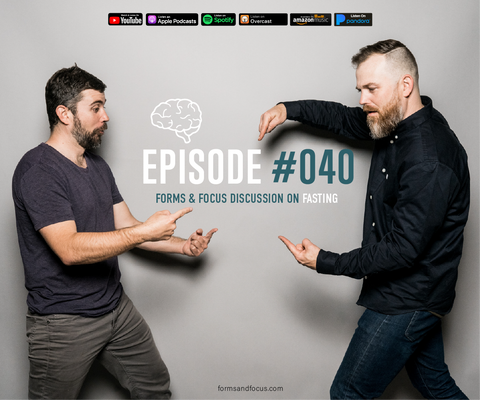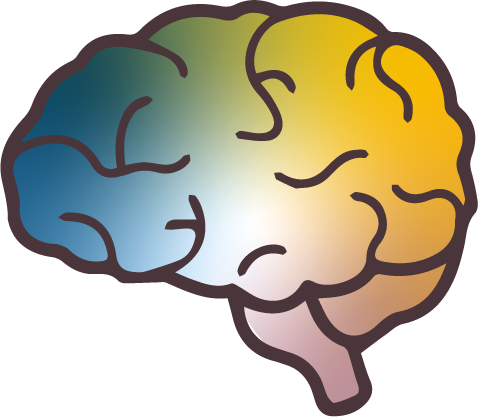
#40 Fasting & Focus
Not eating food may be what your body needs.
0:00 Intro to Fasting and Focus
1:00 Intro to Podcast
1:40 Problems with eating constantly
5:40 The science of fasting
9:30 Solutions to focus
LISTEN
WATCH
THE PROBLEM
Overeating may reduce brain function June 1, 2012 High caloric intake could raise the risk of memory loss. Eating too many calories may do more than just expand your midsection. A recent study suggests that high caloric intake over time may actually raise your odds of developing memory loss or mild cognitive impairment (MCI), later in life.. www.health.harvard.edu
Researchers have linked weight gain to stress, and according to an American Psychological Association survey, about one-fourth of Americans rate their stress level as 8 or more on a 10-point scale.
Stress also seems to affect food preferences. Numerous studies — granted, many of them in animals — have shown that physical or emotional distress increases the intake of food high in fat, sugar, or both. High cortisol levels, in combination with high insulin levels, may be responsible. Other research suggests that ghrelin, a "hunger hormone," may have a role.
Once ingested, fat- and sugar-filled foods seem to have a feedback effect that dampens stress related responses and emotions. These foods really are "comfort" foods in that they seem to counteract stress — and this may contribute to people's stress-induced craving for those foods. www.health.harvard.edu
THE SCIENCE
Here are some intermittent fasting benefits research has revealed so far:
Thinking and memory. Studies discovered that intermittent fasting boosts working memory in animals and verbal memory in adult humans.
Heart health. Intermittent fasting improved blood pressure and resting heart rates as well as other heart-related measurements.
Physical performance. Young men who fasted for 16 hours showed fat loss while maintaining muscle mass. Mice who were fed on alternate days showed better endurance in running.
Diabetes and obesity. In animal studies, intermittent fasting prevented obesity. And in six brief studies, obese adult humans lost weight through intermittent fasting.
Tissue health. In animals, intermittent fasting reduced tissue damage in surgery and improved results. HopkinsMedicin.org
Mayo Clinic: Some research suggests that intermittent fasting may be more beneficial than other diets for reducing inflammation and improving conditions associated with inflammation, such as:
- Alzheimer's disease
- Arthritis
- Asthma
- Multiple sclerosis
- Stroke
The underlying mechanism that causes Alzheimer’s disease (AD) is unknown. It is known, however, that AD is pathologically characterized by beta-amyloid (Aβ) plaques and neurofibrillary tangles, leading to neuronal death, which is clinically characterized by a decay in cognitive abilities. Several studies using animal models have indicated that IF could reduce the accumulation of Aβ plaques and slow down cognitive decline. National Library of Medicine
SOLUTION
Listen to Huberman Lab Podcast #41 for detailed science
No Food for at least an hour after walking
No food 2-3 hour before bed
8 hour feeding window (skip breakfast or dinner)
Ideal window is 10am-6pm
I use coffee and tea to suppress hunger in the morning, and put coconut oil or honey in there for some calories if I’m starving.
Find Us On
https://formsandfocus.com/
https://www.instagram.com/formsandfocus/
https://www.tiktok.com/@formsandfocus
#focus #dream #fasting

Comments (0)
There are no comments for this article. Be the first one to leave a message!